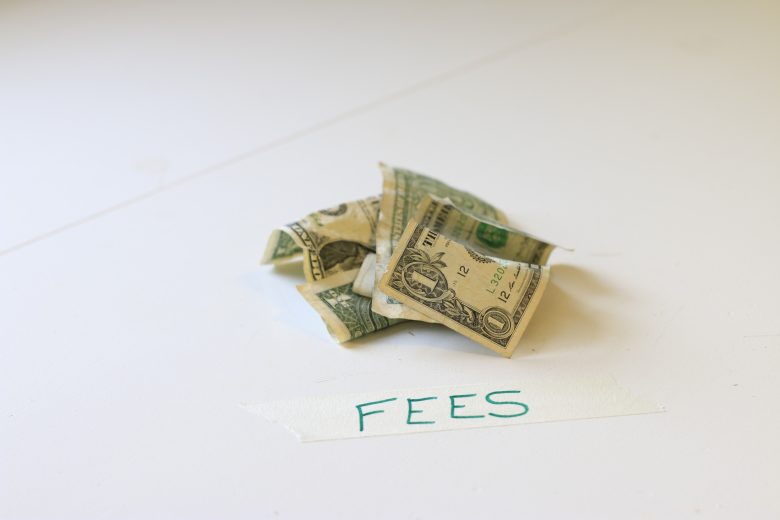Okay, let’s be honest: No one likes bank fees. Yet, many of us still pay them every month without even realizing it. These hidden fees, such as monthly maintenance fees and bank fees, can slowly eat away at your savings. Such behavior is annoying, especially if you’re trying to use your money wisely. These fees are easy to overlook, as banks often hide them in the small print. But here’s the positive news: If you understand these hidden fees and use smart methods, you can avoid them and keep more of your hard-earned money where it belongs: in your pocket. In this article, we’ll discuss hidden bank fees in depth. We’ll explain what they are, why they exist, and most importantly, how to avoid them so you can save more money and have less stress.
How to Spot Hidden Bank Fees:
Banks may apply small fees to your account that could go unnoticed. We refer to these as “hidden bank fees.” Some of these fees include fees for using an ATM that is not in your network, monthly fees for maintaining an account, paper statements, overdraft fees, foreign transaction fees, and even fees for not using your account at all. They are “hidden” in the terms and conditions and are not always clear when you open an account. Many people think their bank account is empty until they see cash withdrawals. The problem is that these small fees can add up to hundreds of dollars per year for the average consumer. Banks profit from these fees yearly, so you’re not the only one surprised. To avoid them, you need to know where they come from and how to spot them early.
Types of Hidden Bank Fees People Commonly Pay:
Now, it is time to analyze the standard suspects. The well-known monthly maintenance fee comes first. Many banks charge this fee just for holding your money unless you meet specific requirements, such as keeping a certain amount in the account or setting up a direct debit. Additionally, bank fees can be a significant financial burden. Spending more than your account balance, even by a few cents, could result in charges of $30 or more. Another waste of money is the ATM fee. The fee is charged when you deposit money at a machine that is not affiliated with a bank. Please keep in mind the fees for paper statements, using your credit card abroad, or if your account is inactive for an extended period. These fees may seem small, but they can add up and affect your budget.
Reasons Banks Charge These Fees?
A bank’s job is to make money. They provide services that help us manage our money, but they also rely on commission income to make more money. As interest rates have fallen recently, banks have had to rely more on fees to maintain their profitability. Financial institutions are collecting large sums of money with little effort by charging hidden fees. They often count on people not reading the fine print or thinking that a simple checking account shouldn’t cost anything. Some fees, like returned checks or foreign currency transfers, are reasonable, but many seem excessive or unfair, especially when they’re not clearly stated. Knowing why these fees exist can help you choose a bank and manage your account.
How to Keep Your Bank Fees a Secret:
Being aware of them is the first step to avoiding secret fees. When you first open an account, read the terms and conditions, even if it seems like a waste of time. Look for the fee section and ask questions if anything is unclear. Then, make sure you maintain the minimum balance required to waive the maintenance fee or set up automatic transfers if that is a condition of the waiver. Monitor your accounts to prevent overdrafts. For example, you may choose to set up a savings account to avoid overdrafts.
To avoid out-of-network fees, only use ATMs that are owned by your bank or are within your bank’s network. To avoid extra fees, opt for electronic invoices instead of paper invoices. If you plan to travel abroad, choose a bank that does not charge fees for foreign exchange transactions. You may also want to opt for a debit card that is travel-friendly. Finally, don’t be afraid to switch banks if you find the fees are too high. Most online banks and credit unions allow you to open an account with little to no fees, which can save you a lot of money in the long run.
Conclusion:
Although it may seem obvious, you don’t have to accept hidden bank fees. You can reduce or even eliminate these hidden fees if you stay informed, take action, and choose your bank wisely. It’s important to be open-minded and not be shy about asking questions. Make your money work for you, not disappear into fees you didn’t know existed. Saving more money requires doing more than just traveling less and drinking less coffee. You need to make better financial decisions every day. Please consider taking the time to understand your bank’s rules, explore other options, and switch banks if necessary. You’re working hard to earn that money. Please ensure your bank is equally diligent.
FAQs:
1. Which banks don’t charge monthly maintenance fees?
Many online banks and credit unions offer free savings accounts. Some examples include Chime, Ally Bank, and Discover Bank. Because these businesses don’t have to pay rent and employee expenses like brick-and-mortar stores, they can pass the savings on to their customers.
2. Can I get my hidden bank fees refunded?
Of course, this happens occasionally. If this is the first time you’ve been charged a fee or you think the fee is unfair, contact your bank’s customer service to inquire about getting the fee refunded. Many banks don’t charge fees if you’re a loyal customer.
How can I keep track of my account to avoid hidden fees?
You can set up alerts for low balances, overdrafts, and large transactions through your mobile banking app. This will help you stay on top of your account and avoid fees.
4. Is online banking safer than business banking in terms of fees?
In most cases, yes. Because there are fewer fees, online banks often have clearer policies and lower rates. To be safe, make sure the online bank you choose is insured by the Federal Deposit Insurance Corporation (FDIC).
5. Should You Switch Banks to Avoid Fees?
Sure. If your current bank’s fees are too high and you’re not getting enough in return, you could save hundreds of dollars a year by switching to a more customer-friendly bank.




